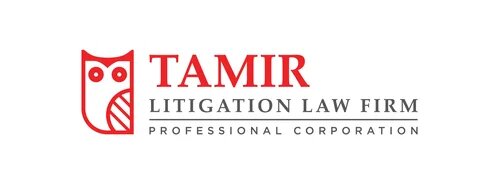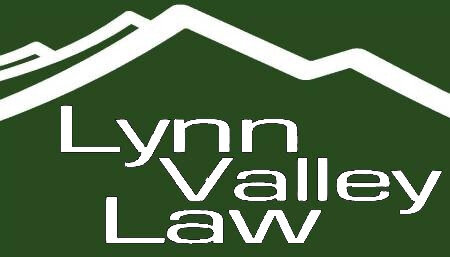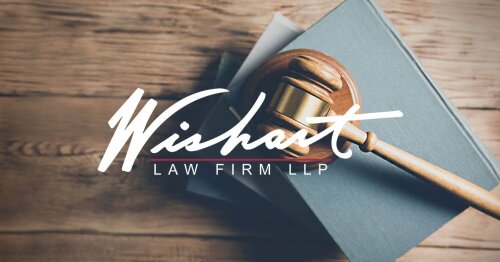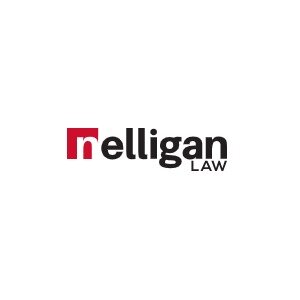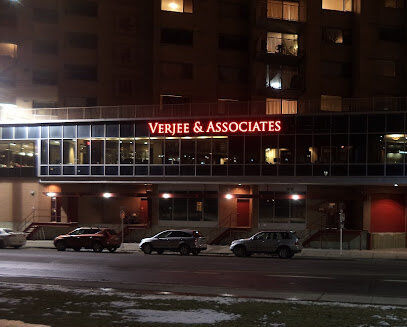Best Bad Faith Insurance Lawyers in Canada
Share your needs with us, get contacted by law firms.
Free. Takes 2 min.
Or refine your search by selecting a city:
List of the best lawyers in Canada
About Bad Faith Insurance Law in Canada
Bad Faith Insurance in Canada refers to instances where an insurance company fails to act in good faith and fair dealing with policyholders. This typically involves the denial or unreasonable delay of legitimate insurance claims. Canadian insurance law expects insurers to uphold their duty of good faith during policy administration and claims processes. If an insurer breaches this duty, it may be liable for damages beyond the original insurance claim amount, including punitive damages intended to penalize wrongful conduct.
Why You May Need a Lawyer
There are several scenarios in which you might require legal assistance in the realm of Bad Faith Insurance:
- Claim Denials: Your legitimate insurance claim is denied without a valid or supporting reason.
- Unreasonable Delays: There are excessive delays in the handling or settlement of your claim.
- Insufficient Investigation: The insurer fails to conduct a thorough investigation of your claim leading to denial or underpayment.
- Lowball Settlements: You receive offers that are unreasonably low relative to the actual damages or loss incurred.
- Failure to Communicate: Your insurer does not provide timely or adequate communication about your claim status or policy coverage.
Engaging a lawyer with expertise in Bad Faith Insurance can help you navigate these issues, negotiate settlements, or litigate your case if necessary.
Local Laws Overview
Canadian insurance law is governed by both federal and provincial regulations. Key aspects relevant to Bad Faith Insurance include:
- Duty of Good Faith: Canadian courts recognize a legal duty of good faith owed by insurers to their policyholders throughout the handling of insurance claims.
- Legislation: Provinces have specific insurance acts, like the Ontario Insurance Act, which articulate the rights and duties of both insurers and insured individuals, including regulations against unfair practices.
- Punitive Damages: Courts in Canada can award punitive damages against insurers found to be acting with malice, deceit, or significant unfairness when denying policyholder claims.
- Case Law: Canadian courts have set precedents in notable cases that influence the interpretation and enforcement of good faith in insurance claims.
Frequently Asked Questions
What constitutes bad faith in an insurance claim?
Bad faith occurs when an insurer unjustly denies a claim, delays processing, or settles for unreasonably low amounts without valid justification.
How can I prove bad faith insurance?
Evidence such as unreasonable delay, lack of communication, insufficient investigation, or a pattern of unfair treatment can support claims of bad faith.
What damages can I receive for bad faith claims?
Apart from the claim amount, you may receive consequential damages, compensation for emotional distress, and punitive damages.
How long do I have to file a bad faith claim?
Limitation periods vary by province, often ranging from one to two years. It's essential to act promptly and consult a lawyer to understand specific deadlines.
Does my insurer have to disclose why my claim was denied?
Yes, insurance companies must provide reasonable explanations for claim denial and details on policy terms or exclusions applied.
Can I handle my bad faith insurance case without a lawyer?
While possible, navigating bad faith claims without legal assistance may risk inadequate settlements. Legal expertise can significantly bolster your case.
What should I do if I suspect my insurer is acting in bad faith?
Document all interactions, correspondence, and decisions made during the claim process and consult a lawyer for legal advice.
Will litigation affect future insurance coverage?
While it may not directly affect future coverage, insurers may consider litigation history when evaluating risk or setting premiums.
Can I switch lawyers if I’m unhappy with my current representation?
Yes, clients have the right to change legal representation if not satisfied, although it’s wise to discuss issues first with your current lawyer.
Is mediation or negotiation preferable to litigation in bad faith cases?
Mediation or negotiation can be less time-consuming and costly than litigation, and may result in favorable settlements. However, some cases may require court intervention for resolution.
Additional Resources
- Insurance OmbudService: Offers dispute resolution between insurers and customers.
- Provincial Insurance Regulators: Oversee industry practices and establish consumer protection frameworks (e.g., FSRA in Ontario).
- Legal Aid Clinics: Provide support and guidance for individuals facing financial barriers in accessing legal services.
- Professional Associations: The Canadian Bar Association offers directories to locate specialized insurance litigation lawyers.
Next Steps
If you believe you are involved in a bad faith insurance situation, consider the following steps:
- Consult a Lawyer: Reach out to experts specializing in insurance law to assess your situation and options.
- Gather Documentation: Collect all relevant documents, including policy copies, correspondence, and claims records, to aid your case.
- Explore Alternative Dispute Resolution: Mediation or arbitration can sometimes resolve disputes more swiftly than formal litigation.
- File a Complaint: If negotiations fail, lodge a formal complaint with your province’s insurance regulator.
Taking these steps ensures a strategic approach to dealing with bad faith insurance matters, protecting your interests and legal rights.
Lawzana helps you find the best lawyers and law firms in Canada through a curated and pre-screened list of qualified legal professionals. Our platform offers rankings and detailed profiles of attorneys and law firms, allowing you to compare based on practice areas, including Bad Faith Insurance, experience, and client feedback.
Each profile includes a description of the firm's areas of practice, client reviews, team members and partners, year of establishment, spoken languages, office locations, contact information, social media presence, and any published articles or resources. Most firms on our platform speak English and are experienced in both local and international legal matters.
Get a quote from top-rated law firms in Canada — quickly, securely, and without unnecessary hassle.
Disclaimer:
The information provided on this page is for general informational purposes only and does not constitute legal advice. While we strive to ensure the accuracy and relevance of the content, legal information may change over time, and interpretations of the law can vary. You should always consult with a qualified legal professional for advice specific to your situation.
We disclaim all liability for actions taken or not taken based on the content of this page. If you believe any information is incorrect or outdated, please contact us, and we will review and update it where appropriate.
Browse bad faith insurance law firms by city in Canada
Refine your search by selecting a city.




